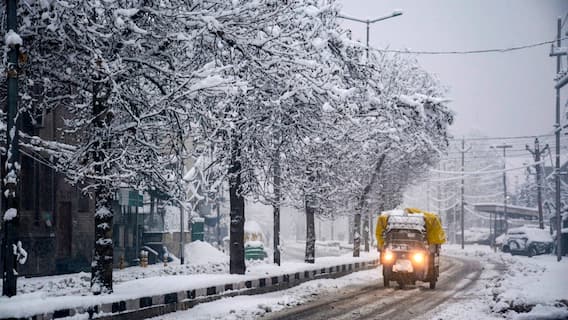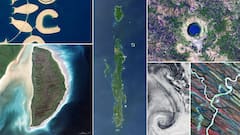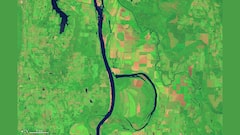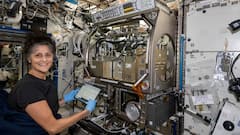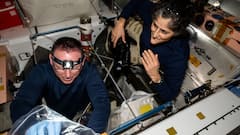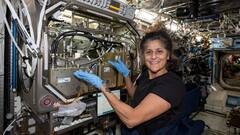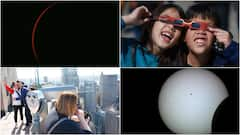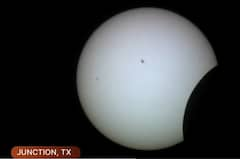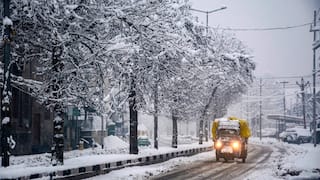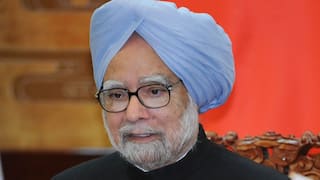People With Food Allergies Are Less Likely To Contract Covid-19: NIH
The study examined whether rates of SARS-CoV-2 infection differ between children who have asthma or allergic conditions and children who do not.

People with food allergies are less likely to contract Covid-19 than people without these allergies, a new National Institutes of Health-funded study has found. Previous research has identified obesity as a risk factor for severe Covid-19. Now, the new study has identified obesity and high body mass index (BMI) as being associated with increased risk for SARS-CoV-2 infection.
Findings Of The HEROS Study
The NIH-funded study, called Human Epidemiology and Response to SARS-CoV-2 (HEROS), has helped determine the rate of novel coronavirus infection in children. It has also helped determine what percentage of children infected with SARS-CoV-2 develop symptoms of Covid-19.
The HEROS study also examined whether rates of SARS-CoV-2 infection differ between children who have asthma or allergic conditions and children who do not. It was funded by the National Institute of Allergy and Infectious Diseases (NIAID), which is a part of NIH.
The study also found that children aged 12 years or younger are just as likely to become infected with SARS-CoV-2 as teenagers and adults, but 75 per cent of infections in children are asymptomatic. The study also confirmed that SARS-CoV-2 transmission within households with children is high. The findings of the study were published this week in the Journal of Allergy and Clinical Immunology.
In a statement released by NIH, Anthony S Fauci, director of the NIAID, said the HEROS study findings underscore the importance of vaccinating children and implementing other public health measures to prevent them from becoming infected with SARS-CoV-2. In this way, the study findings help protect both children and vulnerable members of their household from SARS-CoV-2.
Fauci added that the observed association between food allergy and the risk of infection with SARS-CoV-2, and also the association between body-mass index and the risk of infection with the virus, merit further investigation.
Nearly 1,400 Households Monitored As Part Of HEROS Study
More than 4,000 people in nearly 1,400 households were monitored as part of the HEROS study. The households included at least one person aged 21 years or younger. The surveillance of the households took place in 12 US cities between May 2020 and February 2021, before Covid-19 vaccines started rolling out among non-healthcare workers in the US, and before the widespread emergence of variants of concern.
There were existing NIH-funded studies focused on allergic diseases, and the participants were recruited from those studies. About half of the participating children, teenagers and adults had self-reported food allergy, asthma, eczema, or allergic rhinitis.
According to the study, a caregiver in each household took nasal swabs of participants every two weeks to test for SARS-CoV-2 and filled out weekly surveys. Additional nasal swabs were taken if a member of the household developed symptoms consistent with Covid-19. If a family reported an illness for the first time, blood samples of all the members were collected.
Allergic Disease May Reduce Person’s Susceptibility To Covid-19
Preliminary evidence from different research conducted during the time when the HEROS study began suggested that having an allergic disease might reduce a person's susceptibility to Covid-19 infection. Having self-reported, physician-diagnosed food allergy cut the risk of Covid-19 infection in half, the HEROS investigators found. However, asthma and other allergic conditions monitored were not associated with reduced infection risk. The other conditions considered include eczema and allergic rhinitis.
According to the statement, the participants who reported having food allergy were allergic to three times as many allergens as the participants who did not report having food allergy.
All the conditions were self-reported. Therefore, the HEROS study team analysed the levels of immunoglobulin E (IgE)-specific antibodies, which play a crucial role in allergic disease, in blood collected from a subset of participants.
According to the investigators, a correspondence between self-reported food allergy and food allergens -specific IgE measurements supports the accuracy of self-reported food allergy among HEROS participants, the study said.
Are ACE2 Receptor Levels Reduced?
Tina V Hartert, who co-led the research, and her colleagues speculated that type 2 inflammation, a characteristic of allergic conditions, may reduce levels of a protein called ACE2 receptor on the surface of airway cells. The ACE2 receptor is the one used by SARS-CoV-2 to enter host cells. Therefore, scarcity of ACE2 could limit the ability of SARS-CoV-2 to infect the cells.
Also, people with food allergy often avoid eating out at restaurants, which could explain the lower infection risk for this group. The study team conducted biweekly assessments, which showed that households with food-allergic participants had only slightly lower levels of community exposure than other households.
Obesity Is A Risk Factor For Severe Covid-19
According to previous research, obesity is a risk factor for severe Covid-19. The investigators of the HEROS study found a strong, linear relationship between BMI, a measure of body fat based on height and weight, and the risk of SARS-CoV-2 infection. According to the study, every 10-point increase in BMI percentile increased the risk of infection by nine per cent. Participants who were overweight of obese were found to have a 41 per cent greater risk of infection than those who were not.
Planned analyses of gene expression in cells collected from nasal swabs of participants before and after SARS-CoV-2 may provide clues about the inflammatory environment associated with Covid-19 infection, according to the investigators. The inflammatory environment associated with infection may change as BMI increases, the study said.
How Likely Were Children, Teenagers And Adults In The Study To Contract Covid-19?
According to the researchers, the children, teenagers, and adults in the study all had around a 14 per cent chance of SARS-CoV-2 infection during the six-month surveillance period.
In 75 per cent of children, infections were asymptomatic. Meanwhile, 59 per cent of teenagers and 38 per cent of adults had asymptomatic infections. According to the study, in 58 per cent of participating households where one person became infected, SARS-CoV-2 was transmitted to multiple household members.
The viral load, which is the amount of SARS-CoV-2 found in nasal swabs, varied widely among study participants in all age groups. The researchers found the viral load range among infected children to be comparable to that of teenagers and adults.
The HEROS study team concluded that young children may be very efficient SARS-CoV-2 transmitters within the household due to their high rate of asymptomatic infection, their potentially high viral loads, and their close physical interactions with family members.
Check out below Health Tools-
Calculate Your Body Mass Index ( BMI )
Trending News
Top Headlines









